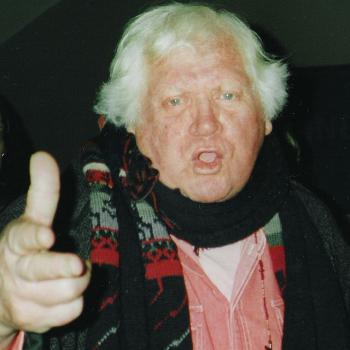
Source: Flickr user badjonni
License
I had the honor (and a lot of fun) chatting with Twisted Issues (1988) director Charles Pinion for my new podcast, co-hosted with Sam McIlhagga, Death is a Photograph. As has been the case for a couple weeks and will be the case for a while, I don’t have a ton of time, as I’ve started a new job. I can’t write like I’d like to. But, following our talk, I had a few thoughts. Why not jot them down here?
Twisted Issues defies categorization. Part gorefest, part document of late 80s punk culture, part anti-television screed, part splatter comedy, Pinion’s first feature must be seen to be believed. That’s easy enough, as it’s on YouTube, where I first saw it, though you should really check it out on Blu-Ray.
He shot the whole thing with a camcorder with people from the Gainesville, Florida punk scene, and it shows. The actors’ deadpan expressions and true-to-life dialogue give that much away. But what makes Twisted Issues special is Pinion’s direction. Despite using a camcorder (in 1988!) to shoot the whole thing, he manages giallo-like lighting, hilarious montage (anti-drug PSAs cut with grizzly murders and Reagan-era suits), and believable blood and guts (at times edited with the real thing). The movie is a testament to the DIY ethic and what collaboration and democratization can accomplish with the right leadership and skill.
The narrative reflects this horizontal approach. We witness punks skateboarding, drifting around, haunted by beer-swilling metalheads in cars. A mad scientist and his assistant show up just in time to resurrect a murdered punk, who soon comes back to life, fencing mask on his disfigured face, skateboard nailed to his foot. The director plays an unkillable young man glued to his TV, where he watches the dead punk take revenge on the out-of-line metalheads. Hawk, a kind of mystic, shows up to do battle, though only for about the last 15 minutes. Pinion transitions between scenes using TV commercials. Everything, he seems to say, is mediated by our love for the screen.
If that sounds “psychotronic,” that’s because it is. Twisted Issues testifies to the power of collective creativity, the ways that human beings can come together absent a studio or any prevailing framework and produce something entertaining, even enlightening. The Gen X punk merits a new respect in mind. For that, I owe Charles Pinion. Soon, I hope, you will too.













